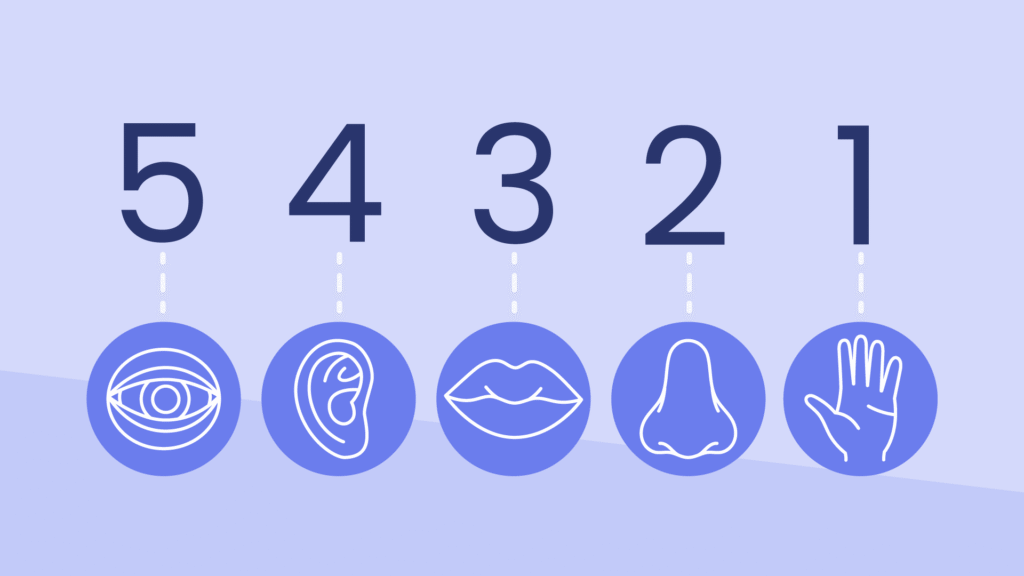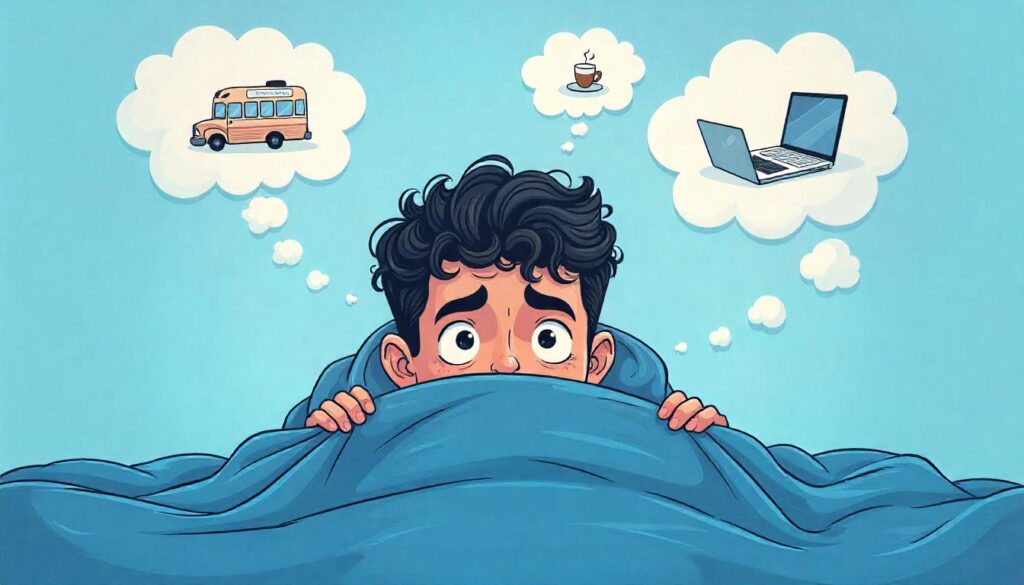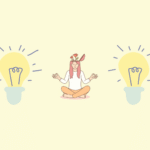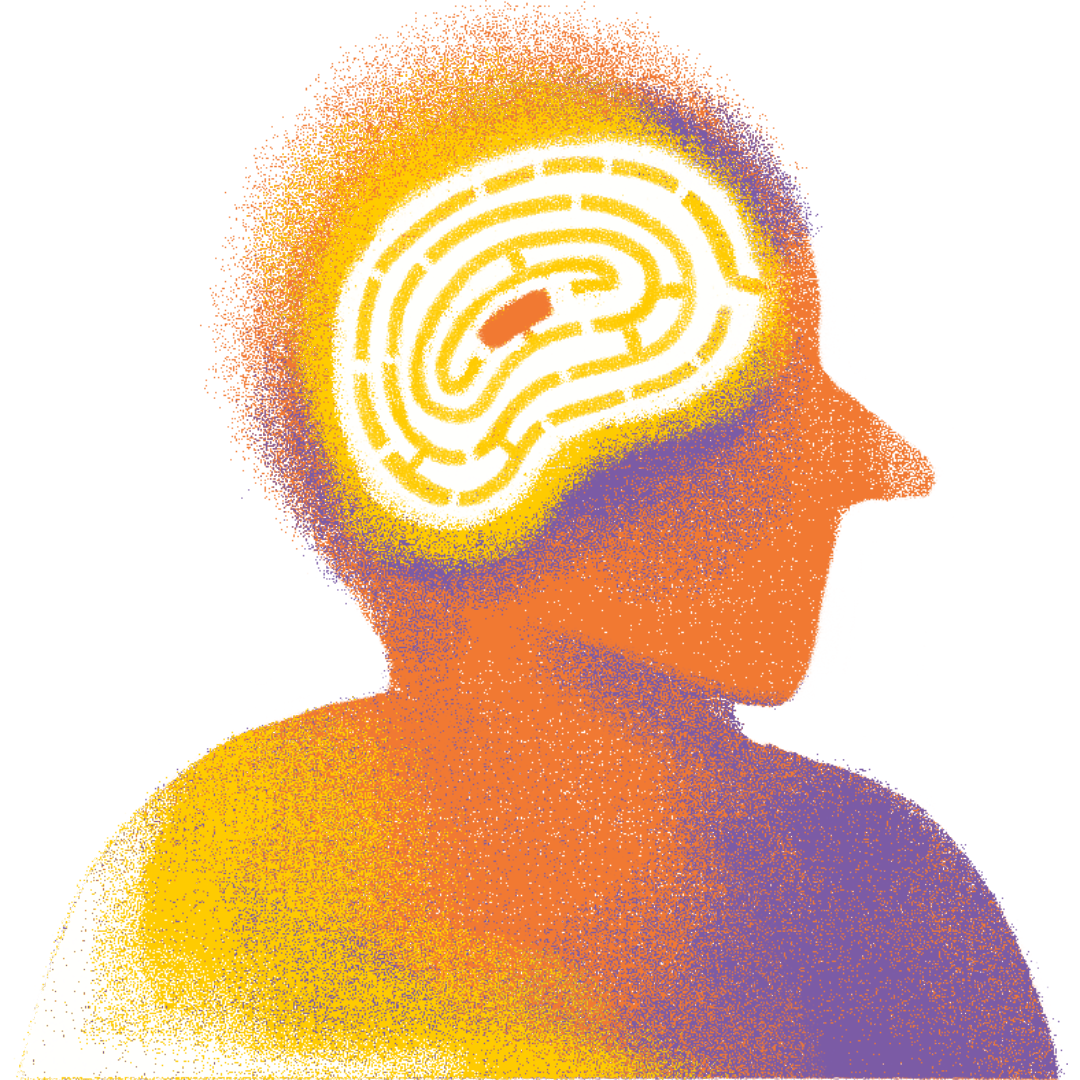Okay, deep breath. Seriously, take one with me right now. In… hold… and out.
You know that funny feeling in your chest, like something really bad is going to happen—even when everything looks okay? That’s called being really, really worried, or anxious. I used to feel that way a lot. It was like having a noisy roommate in my head who never helped and always made things harder. Lots of people feel this too—and it’s okay to talk about it.
I remember one specific Tuesday. I was supposed to give a short, informal presentation at work. Nothing major, maybe 10 minutes. Logically, I knew I was prepared. But my body? My body was convinced I was about to attempt a tightrope walk over Niagara Falls blindfolded. Heart pounding, palms sweating, voice threatening to crack – the whole shebang.
I ended up excusing myself to the bathroom, splashed cold water on my face, and had a full, whispered argument with myself in the mirror: “You are fine. It’s just talking. People do it every day!” countered by, “BUT WHAT IF YOU FORGET EVERYTHING AND JUST STAND THERE SILENTLY FOREVER?!” Spoiler: I didn’t stand there silently forever. It was… fine. Maybe even okay. But the sheer intensity of the dread beforehand? Exhausting. That’s when I knew I couldn’t just keep white-knuckling through it. I needed better tools than just hoping it would magically vanish one day (it doesn’t, by the way).
So, this isn’t a clinical dissertation from someone who’s got it all figured out. This is me, a fellow traveler on this bumpy road, sharing what I’ve learned – often the hard way – about managing the beast. It’s messy, it’s ongoing, but it is possible to find more calm.
What Anxiety Really Feels Like (At Least For Me)
Let’s ditch the textbook definitions for a second. For me, anxiety often manifests as:
- The Overzealous Bodyguard: Sometimes, my body acts like there’s a big danger—even when it’s just something small, like looking at my messages. My heart goes fast, my hands shake, and it’s hard to breathe. It’s like my body is trying to protect me, but it gets way too scared, like a bodyguard jumping at a tiny noise
- The Doomsday Narrator: There’s a voice in my head that keeps thinking of the worst things that could happen—like missing work or forgetting to turn off the stove (even when I already checked!). It loves to worry all the time, even when everything is okay.
- The Avoidance Impulse: Sometimes, I don’t want to do anything at all. I just want to stay in bed and hide because the stuff I have to do feels way too big and scary. That’s called putting things off—or procrastinating.
- The Physical Tax: Worrying doesn’t just happen in your head. It can make your body feel bad too—like tight muscles, sore jaws, tummy aches, feeling really tired, or getting a headache. It’s your body’s way of saying, ‘I’m not okay right now.
I used to think I was just being too sensitive or silly. But then I learned something cool: when we get really scared or worried, our body is just trying to protect us—like when animals run or fight to stay safe. My body thought it was helping me, even when there was no real danger. I had to tell it, ‘Thanks, but it’s okay now! Resources from places like the National Institute of Mental Health (NIMH) were eye-opening in understanding the biology behind the feeling.
My Toolkit: Strategies That Actually Helped (Most of the Time)
I wish I could tell you there’s one magic bullet. There isn’t. Managing anxiety is more like building a personalized toolkit. You try things, see what fits, and keep adding tools. Here’s what’s earned a permanent spot in mine:
- Breathing: Not Just for Staying Alive (Who Knew?)
Yeah, yeah, “just breathe.” It sounds patronizing when you’re mid-panic, right? But hear me out. Simple diaphragmatic breathing (belly breathing) is like hitting a dimmer switch on your nervous system. My go-to? The 4-7-8 technique: Inhale for 4 counts, hold for 7, exhale slowly for 8. Repeat 3-4 times. It forces your body out of fight-or-flight and into “rest and digest.” It’s not a cure-all, but it’s a powerful first step to calming anxiety. I use it before meetings, in traffic, waiting in line… basically anywhere. - Getting Grounded: Where My Senses Saved Me
When my thoughts are spiraling into the terrifying future, grounding techniques pull me back to the now. My favorite is the 5-4-3-2-1 method:- 5 things I can SEE (That slightly crooked picture frame, the blue mug, the dust mote dancing in the sunlight…)
- 4 things I can TOUCH (The cool fabric of my jeans, the smooth phone screen, my own heartbeat, the chair beneath me)
- 3 things I can HEAR (The hum of the fridge, distant traffic, my own breath)
- 2 things I can SMELL (Coffee remnants, laundry detergent)
- 1 thing I can TASTE (Mint from my toothpaste, or just the taste of my mouth)
It sounds simple, but engaging your senses is incredibly effective for reducing anxiety in the moment. It interrupts the panic cycle.

- Thought Interrogation: Calling BS on My Brain
Our thoughts aren’t always facts, especially when anxiety is driving. Cognitive Behavioral Therapy (CBT) principles taught me to challenge those catastrophic narratives. When the thought “I’m going to completely fail and everyone will hate me” pops up, I ask: - Moving This Anxious Body
I used to hate exercise. Truly. But forcing myself for a brisk walk, a sweaty dance session in my living room, or even some vigorous gardening does wonders. Exercise isn’t just about physical health; it burns off stress hormones like cortisol and releases endorphins – nature’s mood boosters. It doesn’t have to be marathon training; even 20 minutes helps alleviate anxiety. It’s like shaking out the nervous energy. - The Stuff We Know But Ignore: Sleep, Caffeine, and Booze
Oh, the holy trinity of anxiety management… that we often sabotage.- Sleep: When I’m chronically sleep-deprived, my anxiety levels skyrocket. Prioritizing even somewhat decent sleep hygiene (consistent-ish bedtime, less screen time before bed) makes a huge difference. My brain is simply less equipped to handle worry on no sleep.
- Caffeine: That comforting cup of coffee? It can be pure jet fuel for anxiety. I switched to half-caff or herbal tea most days. The jitters and racing thoughts decreased noticeably.
- Alcohol: It might feel like it chills you out initially, but it’s a depressant and massively disrupts sleep. The next-day “Hangxiety” is real and brutal for me. Moderation is key (or skipping it altogether when I’m feeling fragile).
- Connection: Leaning In, Not Hiding
Anxiety loves isolation. It whispers, “They won’t understand,” or “You’ll just be a burden.” But talking to trusted friends, family, or joining a support group (even online) is incredibly powerful. Sharing the load makes it lighter. Knowing I’m not alone in this struggle is a massive anxiety reliever. Sometimes, just saying “Hey, I’m feeling really anxious today” out loud takes away some of its power. - When DIY Isn’t Enough: Seeking Professional Help
This is the big one. For years, I tried to manage everything myself. I thought therapy was only for “serious” problems or that I should be able to “tough it out.” Spoiler: That was my anxiety talking, trying to keep me stuck. Reaching out to a therapist specializing in anxiety disorders was transformative. It provided a safe space to unpack the roots, learn personalized coping skills, and get evidence-based treatments like CBT or, if appropriate, discuss medication options with a psychiatrist. It wasn’t a sign of weakness; it was the bravest and smartest thing I did. Psychology Today’s Therapist Finder is a great place to start searching locally. Don’t wait until you’re drowning.
Comparing Common Anxiety Coping Strategies
| Strategy | How it Helps | Best For | My Personal Notes |
|---|---|---|---|
| Deep Breathing | Activates parasympathetic nervous system | Immediate relief during panic attacks | My absolute go-to; always available |
| Grounding Techniques | Brings focus to present moment | Stopping thought spirals | 5-4-3-2-1 method is surprisingly effective |
| Physical Exercise | Burns stress hormones, releases endorphins | Managing chronic anxiety | Doesn’t need to be intense – walking counts |
| CBT Techniques | Challenges distorted thinking patterns | Long-term thought pattern changes | Takes practice but creates lasting change |
| Therapy | Addresses root causes, provides tools | Persistent or severe anxiety | Best investment I’ve made in my mental health |
| Medication (when appropriate) | Balances brain chemistry | When symptoms significantly impair function | Not a standalone solution but helpful for some |
The Messy Truth: It’s a Journey, Not a Fix
Here’s the real talk: Managing anxiety isn’t about achieving some zen-like state of constant calm. That’s not realistic (or probably even desirable!). It’s about learning to cope with anxiety effectively when it shows up. Some days, my tools work like a charm. Other days, anxiety wins the round, and I end up watching cat videos for an hour instead of doing the thing. And that’s okay. Self-compassion is maybe the most crucial tool of all. Beating myself up for feeling anxious just adds a second layer of suffering. I’m learning (slowly!) to talk to myself like I would to a scared friend: with kindness and patience.
Anxiety relief looks different for everyone. What works wonders for your best friend might do nothing for you. Be patient, be curious, and keep experimenting. Stress management is a lifelong skill, and anxiety management is a big part of that.

You’re Not Alone in This
If you’re reading this and nodding along, feeling that familiar tightness or hearing that nagging voice, please know this: You are not broken. You are not weak. You are navigating a complex human experience. Anxiety might be part of your story, but it doesn’t have to be the whole book.
It takes courage to face this stuff. Acknowledge that courage in yourself. Start small. Try one belly breath. Notice one thing you can see right now. Be kind to your weary mind.

What’s one tiny step you can take today to befriend your nervous system instead of fighting it? Maybe it’s downloading a meditation app like Calm or Headspace, scheduling that first therapy appointment search, or just committing to turning off screens 30 minutes earlier tonight. Share your own experiences or what helps you cope in the comments below – let’s build a community of support. We’re all figuring this out together, one breath, one step, one imperfect day at a time. You’ve got this. And hey, I’m rooting for you.




du8eox
Been using xx88com for a while now. The selection of games is HUGE. Sometimes it’s hard to choose! Payouts are usually pretty quick too, which is a big plus. xx88com
Респект за ценный ответ, сам прям недавно углублялся
в подобное!